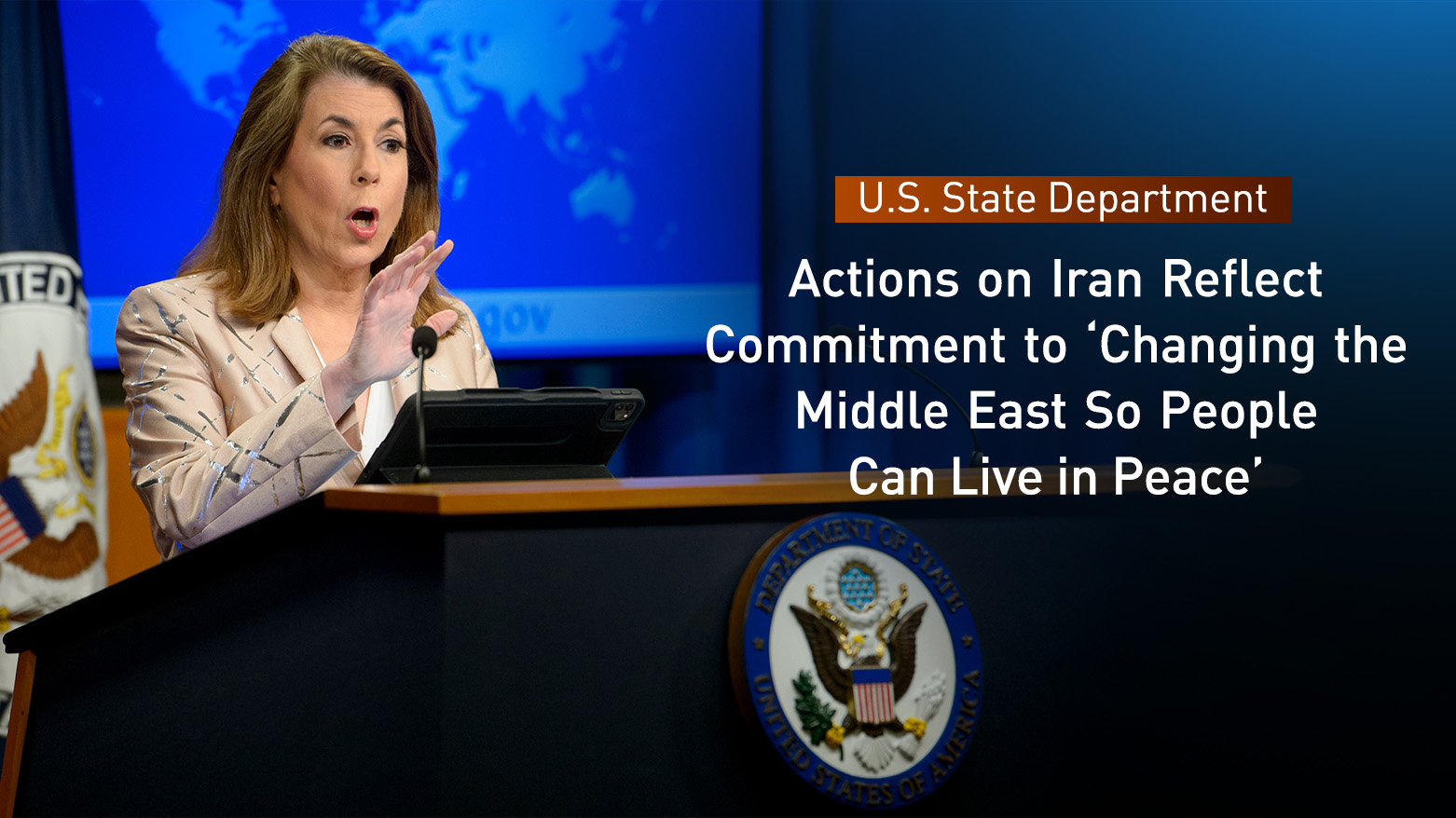U.S. State Department: Actions on Iran Reflect Commitment to ‘Changing the Middle East So People Can Live in Peace’
U.S. reaffirms Middle East engagement: lifting most Syria sanctions, urging Iran talks, backing Israel amid Gaza war. Spokesperson Tammy Bruce says Trump seeks “peace through strength” and aims to “change the Middle East so people can live in peace.”

By Kamaran Aziz
ERBIL (Kurdistan 24) — The United States reaffirmed its active engagement in reshaping Middle East dynamics, focusing on Iran, Syria, and Israel during a press briefing by State Department Spokesperson Tammy Bruce on June 30, 2025. The remarks underscore the Trump administration’s strategic realignment and commitment to "changing the Middle East so people can live in peace," as Bruce emphasized.
Washington Reassures Pressure and Openness Toward Iran
Responding to Kurdistan24 correspondent Rahim Rashidi’s question about Tehran’s recent remarks at the United Nations that the conditions are not favorable for negotiations, Bruce reiterated Washington’s willingness to engage constructively.
“When it comes to what Iran’s leadership is saying of what’s left of it, the President’s words and the President’s position is the one that prevails here,” she said. Addressing the Iranian people directly, she added: “Every country is in the hands of its own people.”
Bruce reaffirmed President Trump’s openness to dialogue but emphasized a readiness to ensure regional peace through all necessary means. “He continues to be willing to do whatever is necessary to make sure there’s peace in the region,” she noted.
No Confirmation on Meeting with Kurdish Leaders
In response to Rashidi’s separate question on whether a meeting is planned in Erbil between the U.S. representative to Syria, Mazloum Kobani, and Kurdistan Region Prime Minister Masrour Barzani, Bruce stated: “No, I can’t speak to any ongoing meetings or meetings that may or may not be coming up.”
Sanctions Relief for Syria but Assad Remains Targeted
A significant policy development announced during the briefing was President Trump’s decision to lift broad U.S. sanctions on Syria.
Bruce explained, “The President is going to sign an executive order to terminate the U.S. sanctions program on Syria, and this is in an effort to promote and support the country’s path towards stability and peace.”
However, the sanctions relief excludes individuals tied to severe human rights violations.
“The order will remove sanctions on Syria while maintaining sanctions on the former President Assad, his associates, human rights abusers, drug traffickers, persons linked to chemical weapons activities, ISIS members and their affiliates, and Iranian proxies,” Bruce clarified.
She added that the implementation of this policy would fall primarily under the Treasury Department, with ongoing diplomatic oversight by the State Department and Ambassador Barrack, the administration’s special envoy for Syrian stabilization.
“This is about the Treasury, it’s about the White House, and certainly our special envoy, Ambassador Barrack, and his work getting that country back on its feet,” she said.
Support for Israel Amid Gaza Conflict and Civilian Harm Probes
The briefing also addressed recent developments in Gaza, particularly regarding allegations of harm to civilians near aid distribution centers. Bruce said that while Israel has launched internal investigations, U.S. support for aid initiatives such as the Gaza Humanitarian Fund (GHF) would continue.
“We do expect – and the IDF and Israel have announced that they are of course investigating certain incidents,” Bruce said. “It is a good time for a reminder here that Hamas is responsible for the current situation in Gaza.”
When asked whether the United States would reconsider funding to GHF, she firmly replied: “The answer to that certainly is no.” Bruce highlighted that over 51 million meals have already been distributed in Gaza despite the conflict and accused Hamas of undermining aid efforts.
Responding to reports of additional Israeli strikes in Gaza City, Bruce called the situation a war zone and reiterated that Hamas had broken a previous ceasefire.
“We had a ceasefire, which they violated, and refused to engage in another one. We continue, despite all of that, to get another ceasefire,” she said.
While declining to comment on private discussions between President Trump and Israeli Prime Minister Benjamin Netanyahu, Bruce stressed the strength of bilateral ties.
“The President has an excellent relationship with Bibi Netanyahu,” she affirmed, noting that both parties remain committed to a path toward stability.
A Broader Vision for Peace
Throughout the briefing, Bruce returned to the administration’s guiding principle of “peace through strength,” stating that recent decisions on Iran, Syria, and Israel are part of a strategic vision.
“Our action and the issues with Iran speak to our commitment to changing the Middle East so people can live in peace,” she stated.
As diplomatic and humanitarian efforts continue, the U.S. appears poised to play an assertive role in navigating the region’s intertwined crises, aiming to unlock long-term pathways for peace, governance, and development.
You can read the transcript of the U.S. State Department Briefing on June 30, 2025, here.
You can watch the U.S. State Department Briefing on June 30, 2025, below.